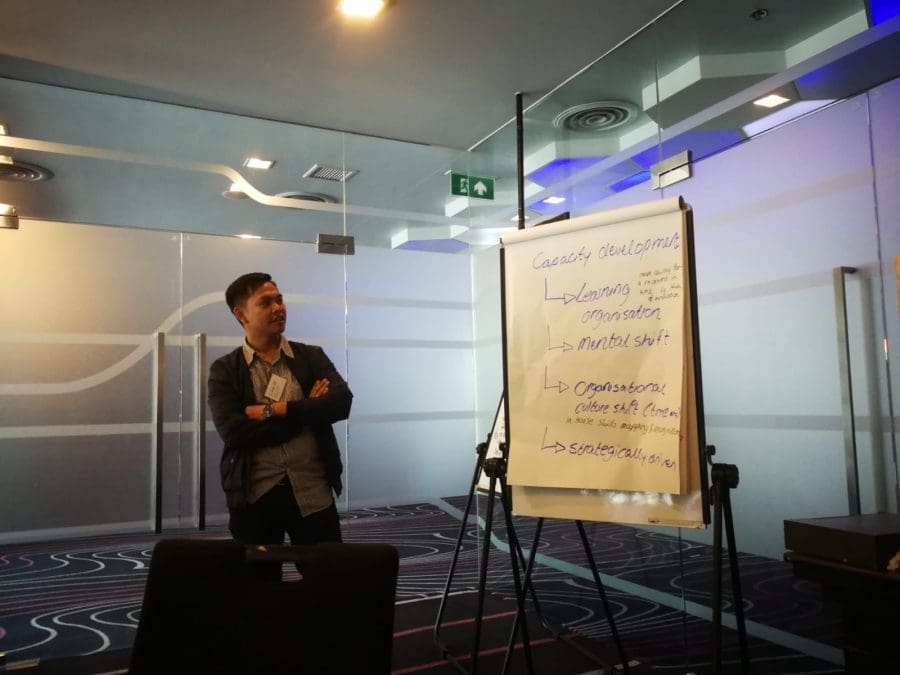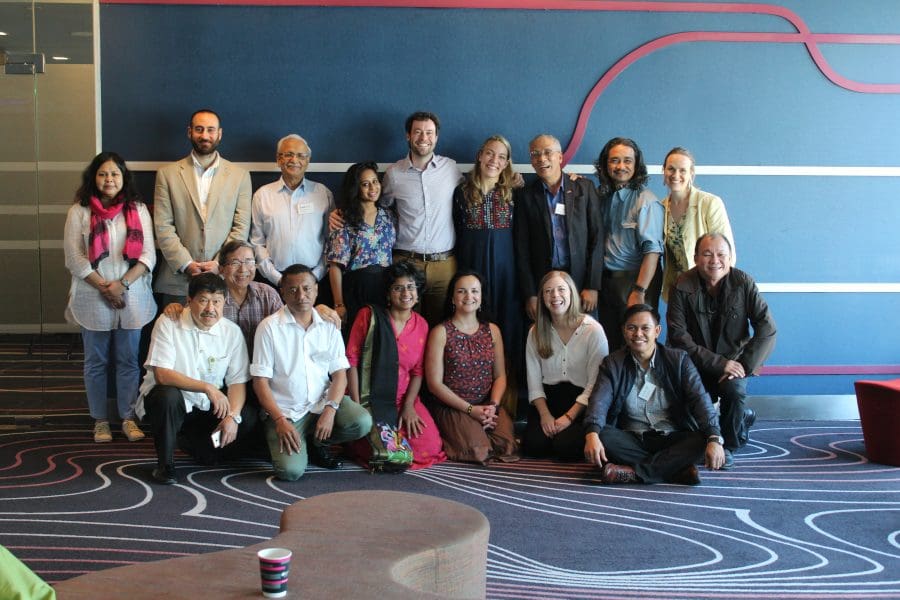Capacity development in international transitions: can it be used to shift the norm?
In this article, Grace Boone of CDA Collaborative Learning, part of the “Stopping As Success” consortium, discusses capacity development in transitions, particularly focusing on the theme of psycho-social support for local actors given on behalf of INGOs during the transition.
“Local staff [of INGOs] were critical and young. They clashed with the approaches of INGOs and considered models to be too patronizing… They wanted INGOs to empower them rather than be paternalistic.”- Local academic, Colombia
Cross-Case Analysis: One Important, But Uncommon, Type of ‘Capacity Development’
Capacity development is a theme that appears throughout the 20 case studies documented by the SAS consortium to explore exit strategies and transitions in different environments. Whether it is through operational support, team building, or technical trainings, both INGOs and local actors develop each other’s capacity during and after exits and transitions.

A surprising, yet salient component of capacity development in the cases has been the importance of psycho-social or moral support, such as empowerment, team building, and confidence building, on behalf of INGOs in order for local actors to feel confident to lead their own organization post-exit. In some cases, this support was valued more, in retrospect, than technical workshops. As noted in one case study in Georgia: “Moral, psychological, and knowledge-sharing support can be more important than financial during the transition.”
When SAS held an online consultation in 2017 that convened 95 participants from over 40 countries, the participants noted the power imbalance within capacity development:
“Bringing in experts necessarily implies that outsiders have the knowledge that local people are lacking and should receive. Hence people who should be developed start from the position of disadvantage, thereby legitimizing the inequality… and further reinforcing it through the explicit authority of professional experience.” – Edward Mungu
“Much of the capacity development we implement is geared towards complying with donor requirements, be it in terms of administration, project design and implementation, or technical skills.” – Gonzalo Delgado
Acknowledging this power imbalance, the SAS consortium is eager to learn more about collaborative empowerment and partnership during transitions in regard to capacity development.
Understanding ‘Empowerment’ During Transitions
Processes that support local ownership during and after INGO transitions require an authentic process rooted in the context where such transitions are taking place. CDA has documented lessons of evolving partnerships and their impact on local peacebuilding and development efforts during the Listening Project which engaged 6,000 people in 20 countries. Our book, Time to Listen, synthesizes an aid system that is not a collaborative nor empowering one for local actors. Two years into the SAS project, we have found a similar aid environment to the one Time to Listen described in 2012.
“The [international] intervention to restore law and order after the violence took the steam out of domestic efforts to do things. Support for civil society weakened because people felt they didn’t have to do it now… it took the stuffing out of homegrown attempts to deal with the insurgency and we are still trying to get over this.” – Consultant, Solomon Islands

In our Kenyan case study, the case writer highlighted how local community members often felt inferior to mzungus (a term used in East Africa to refer to a white person), particularly in regard to the implementation of development projects. One Regional Manager for Nuru Kenya, a local NGO in Kenya, explains how external aid workers have historically been perceived to have their own solutions to communities’ problems: “When a Black person sees a muzungu, he thinks he has a lot of money and all the solutions to solve their problems.” She continues: “When [the community] participate[s] in the process, they own the process.”
Considering this aid system, INGOs in aid transitions are in a unique position to support the empowerment and confidence of local actors, depending on what their needs are. For example, in the Colombia case study, the balance between the INGO giving psycho-social support to local actors and giving the national staff space and creative freedom to create their own organization helped pave the way for a successful transition.
In the Kenyan case study, Nuru instilled feedback mechanisms into their aid exit to ensure adaptive management was centered around staff and local actors’ feedback throughout the transition. This is one practical way to center the voices of those affected by the exit. As this learning effort continues into Year 3, which is our year of applying evidence to the program cycle so as to develop practical guidance and tools for INGOs, we will continue to share thoughts and reflections about this experience and to continue the conversation on responsible aid exits and transitions.
Are you interested in this learning effort? Get in touch!
The SAS consortium is eager to learn more about how INGOs are acknowledging the power imbalance and working in partnership alongside local actors during aid exits. In March 2019, members of the SAS consortim came together for a Regional Review Meeting in Bangkok, Thailand,to discuss our case studies, continue to consolidate our findings, and get feedback on the most practical guidance tools to produce as the project moves forward.




